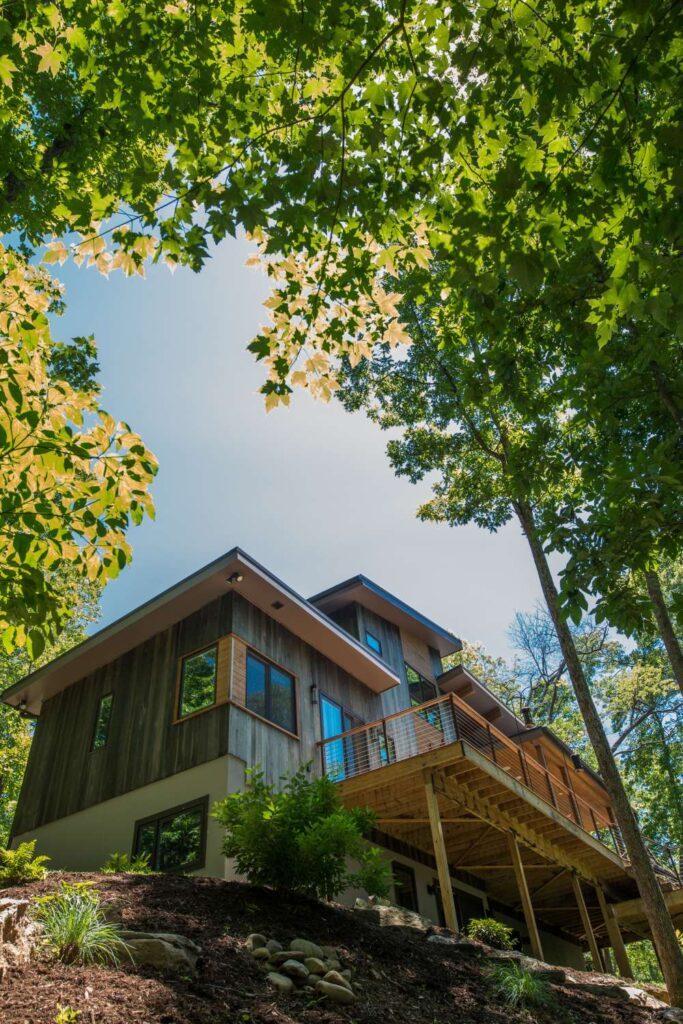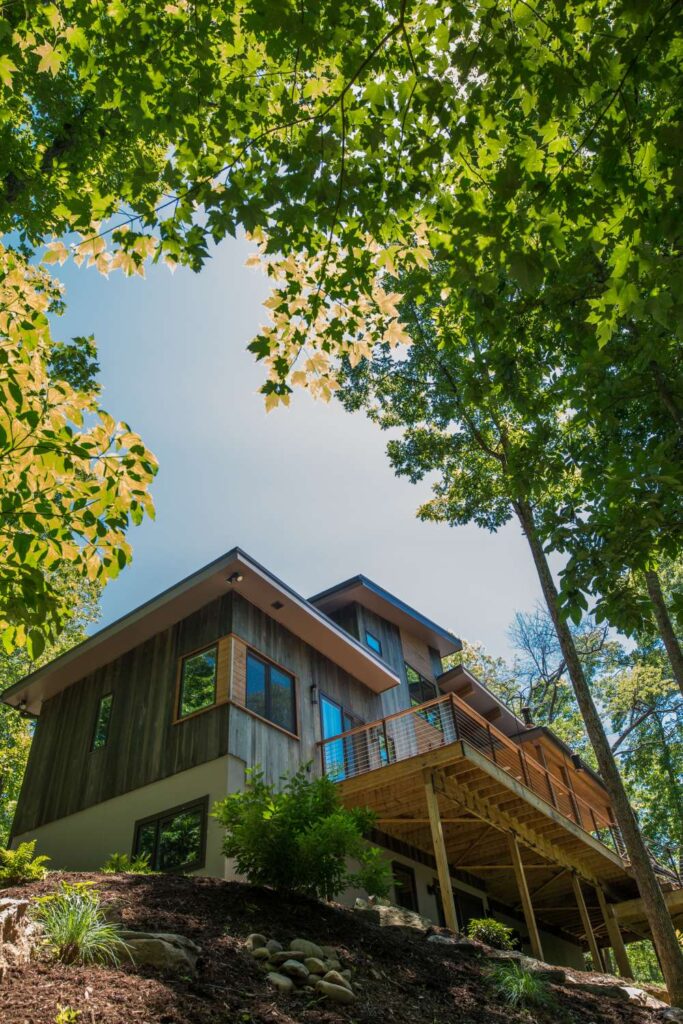Regenerative Design: Green Built Homes Certification Evolves with Updated Checklist
Cari Barcas
Green Built Homes is updating its statewide certification program this year to incentivize builders to incorporate elements of regenerative design in their projects.
Formerly known as NC Healthy Built Homes, the Green Built Homes program has certified 1,700 houses by more than 250 builders across North Carolina since its inception in 2004.
As codes have changed and technologies have advanced in the 15 years since the program’s inception in 2004, Green Built Homes has continually evolved to encourage positive changes in the building industry and highlight new opportunities to make projects more sustainable.
Most recently, in 2015, the program added a Net Zero Ready and Net Zero Energy Certification to reward builders of homes that produce as much energy on site as they use over the course of a year.

Now in 2019, through the support of the Kendeda Fund and local partners, the Green Built Homes program is poised to take the next leap toward regenerative buildings. Regenerative buildings are designed and built so that they are integrated and have a net-positive impact on the natural environment around them.
“A basic study of sustainability and the built environment’s role in the climate crisis indicate that it is imperative to make every decision an environmental improvement,” said Stephens Smith Farrell, an architect member of Green Built Alliance who also serves on the nonprofit’s Board of Directors. “Green Built Homes has shown that profound market change is possible. We’re going to continue pushing the margins of possibility until creating clean energy, cleaning the air and water, strengthening local economies, and ensuring the well being of all life with every action becomes standard practice.”
The certification system will evolve beyond its current approach of just rewarding features that make homes “less bad” for homeowners and the environment, to begin encouraging even more regenerative elements that actually improve the world around them. For example, a home with regenerative elements may produce more energy than it uses; capture and treat water onsite; incorporate biophilic design to enhance human connection with the natural world; or prioritize site restoration and native plantings or food production.
The program will now reward homes for calculating the total indoor and outdoor water use as designed. Homes that have the capacity to capture enough water to supply the needs of the home and manage 100 percent of their stormwater onsite can receive a new Net Zero Water Certification. Other expanded credit opportunities include use of completely non-toxic materials, onsite food production, restoring landscapes to protect local wildlife and more. As part of the process, the Green Built Homes program will host a monthly series of in-depth, inspirational workshops through the fall and winter of 2019, which are aimed at educating and engaging building professionals in regenerative design.
“Many local builders and architects are ready for the challenge, inspiration and recognition of an advanced, regenerative version of Green Built Homes,” said Green Built Alliance Program Director Maggie Leslie, who manages the Green Built Homes program. “In addition, embedding items throughout the checklist will educate and inspire builders of all levels with new ideas.”
As Green Built Homes looks toward the next chapter of encouraging regenerative elements in its projects, it is also celebrating the success of its Net Zero Certification. In four years since beginning to offer that, Green Built Alliance has certified 30 Net Zero Energy homes.
“The ultimate goal of this next step is a truly regenerative level of certification for homes that have a net-positive impact on the world around them,” Leslie said. “While this does not require new technology, it will take some time for building codes to adapt, so education and advocacy is a critical step to realizing our vision of a regenerative future.”
Cari Barcas is community engagement director at Green Built Alliance. She has more than a decade of experience in communications and nonprofit management, including time reporting on the green-building scene in Chicago as a journalist covering residential and commercial real estate. Connect with Cari at cari@greenbuilt.org.
You can also view this article as it was originally published on page 31 in the 2019-2020 edition of the directory.


